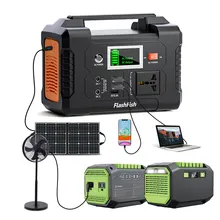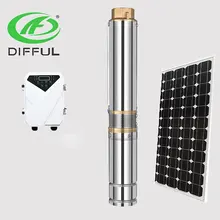The Lead Acid Battery 24v: An Overview
The Lead Acid Battery 24V is a rechargeable battery comprising two 12-volt cells connected in series, resulting in a 24-volt battery pack. Widely utilized in applications such as solar or wind power systems, electric vehicles, and household appliances, these batteries are renowned for their maturity in technology, rendering them a favored choice for numerous high-energy applications.
At the core of a lead acid battery's functionality lies the movement of ions, serving as charge carriers, between the positive and negative plates within each cell. Discharging involves the flow of these ions from the negative plate to the positive plate, consequently releasing stored energy. Charging, on the other hand, involves an external electrical power source propelling the ions back to their original positions, thereby replenishing the battery for subsequent use. This cyclic process of charging and discharging underscores the reliability of lead acid batteries for repetitive energy cycles.
Lead acid batteries are esteemed for their cost-effectiveness and capacity to deliver robust starting currents, making them a common choice for automotive applications. Nonetheless, their weight and comparatively lower energy density vis-à-vis other battery variants limit their suitability for portable electronics or electric vehicles necessitating lightweight and high-energy-density solutions. Regular maintenance, including replenishing with distilled water, is imperative for these batteries, presenting a limitation in certain applications.
Variants of Lead Acid Battery 24V
The market presents an array of 24V lead-acid batteries tailored to diverse requirements and applications:
-
Deep Cycle 24V Batteries: Predominantly employed in applications requiring frequent deep discharges like electric vehicles, golf carts, and marine uses, these batteries possess a high energy storage capacity, engineered for repeated charging and discharging cycles throughout their lifespan.
-
Sealed Lead Acid 24V Batteries: Known as maintenance-free lead-acid batteries, these spill-proof batteries necessitate no electrolyte maintenance. They find application in electric wheelchairs and household appliance backup systems.
Each type caters to distinct use cases, with deep cycle batteries ideal for applications mandating regular deep discharges over prolonged periods, while sealed lead acid 24V batteries suit scenarios where maintenance is impractical or maintenance-free operation is desired.
Selecting the Right Lead Acid Battery 24v
The process of selecting an appropriate lead-acid battery for your business hinges on understanding the specific requirements of your application. Consider parameters such as capacity, voltage, dimensions, weight, and intended usage. For instance, when procuring batteries for a solar energy storage system, prioritizing high-capacity, long-lifespan deep cycle batteries would be prudent. Conversely, for electric vehicles or UPS systems, emphasis should be on high discharge rates and efficiency.
Environmental conditions in which the battery will function should also be factored in. Certain lead-acid batteries exhibit better performance under extreme temperatures. Moreover, assess the maintenance level your clientele is willing to undertake, as some batteries necessitate more frequent upkeep than others.
Businesses seeking lead-acid battery procurement should prioritize supplier reliability on Alibaba.com. Consider aspects such as order volume capacity, delivery timelines, and quality assurances via Trade Assurance services. Given Alibaba.com's focus on B2B transactions with suppliers offering wholesale quantities, ensuring that your supplier can meet your volume prerequisites without compromising quality is paramount.
Lead Acid Battery 24v on Alibaba.com
Alibaba.com serves as a global marketplace connecting businesses with a wide array of suppliers offering diverse lead-acid battery types suitable for various industrial needs. Whether sourcing batteries for large-scale solar energy storage systems or compact solutions for electric wheelchairs, Alibaba.com boasts an extensive selection catering to all applications without compromising on quality or value.
The platform's user-friendly interface enables businesses to filter products based on specific criteria like voltage, capacity, and protection features, facilitating swift identification of optimal solutions. Additionally, Alibaba.com's Trade Assurance service ensures transaction security until delivery confirmation, providing peace of mind.
Choosing Alibaba.com for wholesale lead-acid battery needs presents a multitude of benefits, including competitive pricing and product customization based on unique business requirements. This customization capability, coupled with Alibaba.com's global accessibility, positions it as an invaluable resource for businesses seeking dependable energy solutions in today's interconnected landscape.
Frequently Asked Questions about Lead Acid Battery 24v
What is the typical lifespan of a lead-acid battery?
The lifespan of a lead-acid battery generally ranges from 3 to 5 years or approximately 300 to 500 charge cycles, contingent on usage conditions and maintenance practices.
How do I determine the suitable battery size for my application?
To ascertain the appropriate battery size, calculate your system's energy requirements in watt-hours (Wh), then divide by the battery's nominal voltage to obtain the requisite Ah (amp-hour) capacity.
What are the common applications of lead-acid batteries?
Lead-acid batteries find common usage in automotive vehicles, uninterruptible power supply (UPS) systems, solar energy storage solutions, golf carts, and diverse industrial settings.
Can lead-acid batteries be recycled?
Absolutely, lead-acid batteries are recyclable. Adhering to local recycling regulations is crucial to ensure proper disposal and prevent environmental harm.
Are there different types of lead-acid batteries available?
Indeed, there are various types of lead-acid batteries including deep cycle, sealed gel, and pure lead-acid batteries, each tailored for specific applications and environmental conditions.
What factors should I consider when purchasing a lead-acid battery for a solar energy system?
When procuring a lead-acid battery for a solar energy system, factors to consider include sustained power supply capability, resistance to deep discharge cycles, and compatibility with the system's charge controller.
How should a lead-acid battery be maintained?
Maintaining a lead-acid battery typically involves monitoring electrolyte levels, verifying tight connections, and storing it in a cool, dry environment when not in use.
Is it possible to overcharge a lead-acid battery?
Yes, overcharging a lead-acid battery can lead to reduced capacity and potential damage. Using a charger specifically designed for lead-acid batteries with suitable voltage and current output is essential.
Can lead-acid batteries be used in electric vehicles (EVs)?
Lead-acid batteries are not recommended for EVs due to their weight and low energy density. Lithium-ion batteries, offering higher energy densities and superior performance, are typically preferred by EV manufacturers.
Are portable lead-acid batteries available for devices like electric scooters and motorhomes?
Absolutely, portable lead-acid batteries designed for devices such as electric scooters and motorhomes are available. These batteries are typically lighter and possess lower capacity compared to stationary variants.
How does temperature impact lead-acid battery performance?
Extreme temperatures can significantly influence lead-acid battery performance. For instance, low temperatures may reduce capacity and impede chemical reactions, while high temperatures can trigger thermal runaway and damage.
Can lead-acid batteries be customized based on specific requirements?
Lead-acid batteries can indeed be customized concerning capacity, voltage, dimensions, and other features to align with particular application or system requirements.





































 浙公网安备 33010002000092号
浙公网安备 33010002000092号 浙B2-20120091-4
浙B2-20120091-4